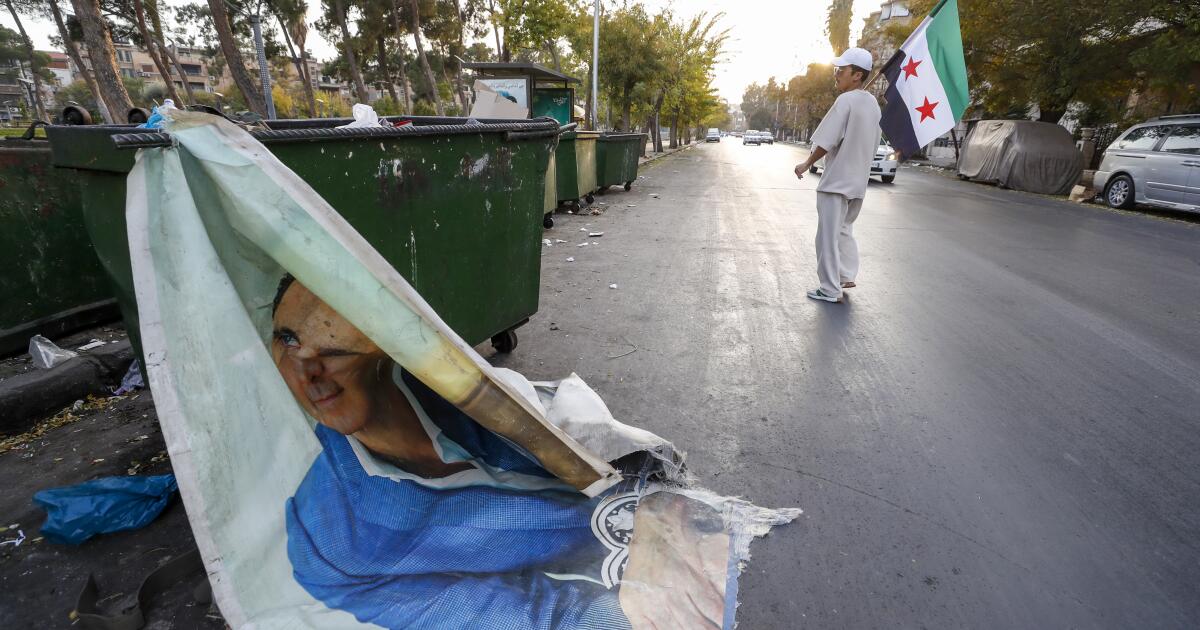WASHINGTON — Senior U.S. diplomats traveled to Damascus Friday and held a first-ever meeting with the rebels who toppled longtime dictator Bashar Assad. Washington officially regards the rebel group as terrorists.
U.S. officials said they pressed the transitional government established by rebels to respect the rights of Syria’s numerous ethnic and religious sects as well as women. They said they received new leads on the fate of long-missing American journalist Austin Tice but could not reach a conclusion about his whereabouts or whether he is alive.
In an initial gesture of goodwill, the Biden administration canceled a $10-million bounty it had placed on the head of the rebels’ leader, Ahmed Sharaa, also known as Abu Mohammad Julani.
Barbara Leaf, the top U.S. diplomat for the Middle East and leader of the delegation, said it made sense to remove the reward since she and the other officials were meeting with him face-to-face.
Leaf was accompanied by Roger Carstens, the administration’s lead official for hostage negotiations, and former special envoy for Syria Daniel Rubinstein. They spoke by telephone to reporters after departing Damascus.
It was the first time U.S. officials have formally visited Damascus since the U.S. Embassy there was shuttered in 2012 as the country descended into a savage civil war. Backed by Russia and Iran, the Assad regime is believed to have killed tens of thousands of people, while many more were tortured in crowded, dismal secret prisons.
Assad fled the country two weeks ago as rebels led by Sharaa’s group, Hayat Tahrir al-Sham, or HTS, stormed Damascus. It was a swift and spectacular collapse of a dynastic regime that terrorized the nation for half a century.
But the next steps are complicated for U.S. policymakers. Washington has formally labeled HTS a terrorist group. HTS traces its roots to terror groups Islamic State and Al Qaeda but claims it has reformed. The designation carries with it numerous economic sanctions and complicates assistance from aid groups or other parties.
Leaf would not say whether HTS would be removed from the terror list or if sanctions would be lifted.
Asked if she believed Sharaa had become a more moderate leader, Leaf seemed willing to give him the benefit of the doubt. She described him as “pragmatic” and the talks as “quite good, very productive, detailed,” covering “a wide set of issues, domestic and external.”
“We’ve been hearing this for some time, some very pragmatic and moderate statements on various issues from women’s rights to protection of equal rights for all communities, etc.,” Leaf said. “It was a good first meeting. We will judge by deeds, not just by words. Deeds are the critical thing.”
Carstens said U.S. officials had believed Assad maintained around a dozen clandestine prisons, but as victims emerge and information comes to light, it appears there could have been 40 or more. While the U.S. has been working with what Carstens called credible evidence that Tice, the journalist, may have been held in as many as six prisons, new information indicates he might have been at one or two others. Searching is slow-going because the U.S. still has a limited presence in Syria, primarily a few hundred troops but no diplomatic or law enforcement personnel.
“We’re going to be like bulldogs on this,” Carstens said. “We’re not going to stop until we find the information that we need to conclude what has happened to Austin, where he is, and to return him home to his family.”
Tice, a freelance reporter who would be 43 years old now, was snatched by gunmen at a checkpoint near Damascus in August 2012 and has not been heard from since.
